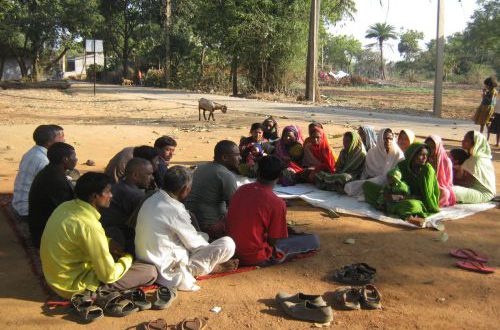Pinki Kumari, case no 581 is a sponsored child of the village Nawadih of Bounsi Block of Banka district. She have completed her education upto standard 12th and then dropped out of education. Her father is a marginalised farmer and could only fulfil the minimum requirement of his family. Her mother is a house wife. Pinki lives with her family in a very small thatched house and has one brother and sister, who is married.
Pinki has been enrolled under childFund India program and got sponsorship on the year 2002, since then Pinki participated in ChildFund India’s program regularly. When Pinki dropped out of her education Chetna Vikas ChildFund India staffs enrolled her in the beautician course as she showed interest in the beautician course and dreamed to develop as an entrepreneur instead of getting married. She received three months training in the Daksh Centre and because of her performance she was selected to get the material support for opening her own beauty parlour.
She also attended life-skill training which helped her in taking the decision of doing business rather than getting married. Though her family was never supportive and wanted her to get married as soon as possible, but her strong determination helped her to go against her parents.
Although she had all the necessary equipments but she lacked space to run her own beauty parlour, so ChildFund India team of Chetna Vikas helped her get a space for her parlour beside the CoE.
She is now doing carrying her business quite well and supporting her family. Presently she is earning less than one thousand rupees per month and is happy with her earning. She quotes “it is because of ChildFund India and Chetna Vikas I have a career now and I can support my family”












 This is a story of the Anganwadi Centre in Dumarthar where the Sevika, Lacy Teresa is responsible and accountable for the delivery services of the Government financed programs. However, the Community is unaware of the merits of per-schooling and nutrition in AWC. The project team’s review highlights the fact that although 40 children were enrolled at the center only 13 were present. The centre covered two villages. Thus, distance was undoubtedly an issue, but ignorance from parents was the major issue.
This is a story of the Anganwadi Centre in Dumarthar where the Sevika, Lacy Teresa is responsible and accountable for the delivery services of the Government financed programs. However, the Community is unaware of the merits of per-schooling and nutrition in AWC. The project team’s review highlights the fact that although 40 children were enrolled at the center only 13 were present. The centre covered two villages. Thus, distance was undoubtedly an issue, but ignorance from parents was the major issue.